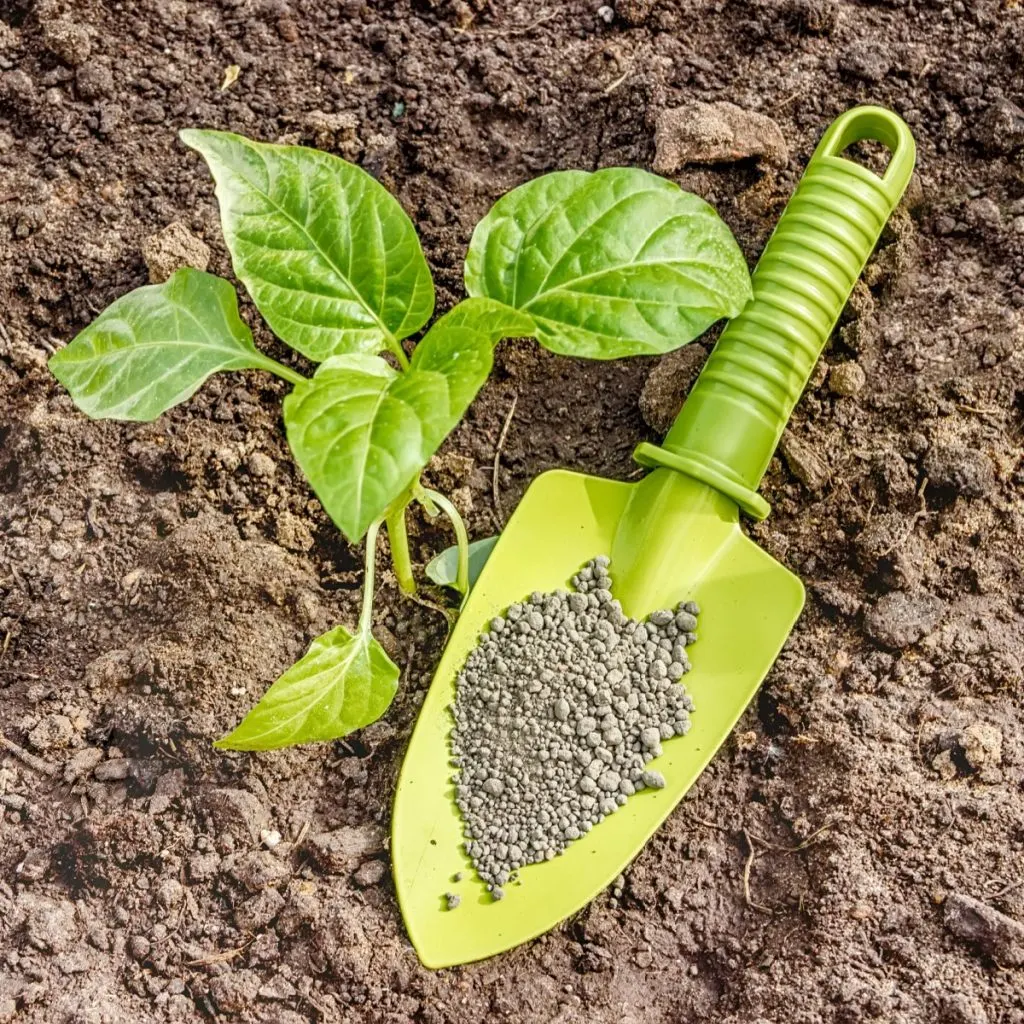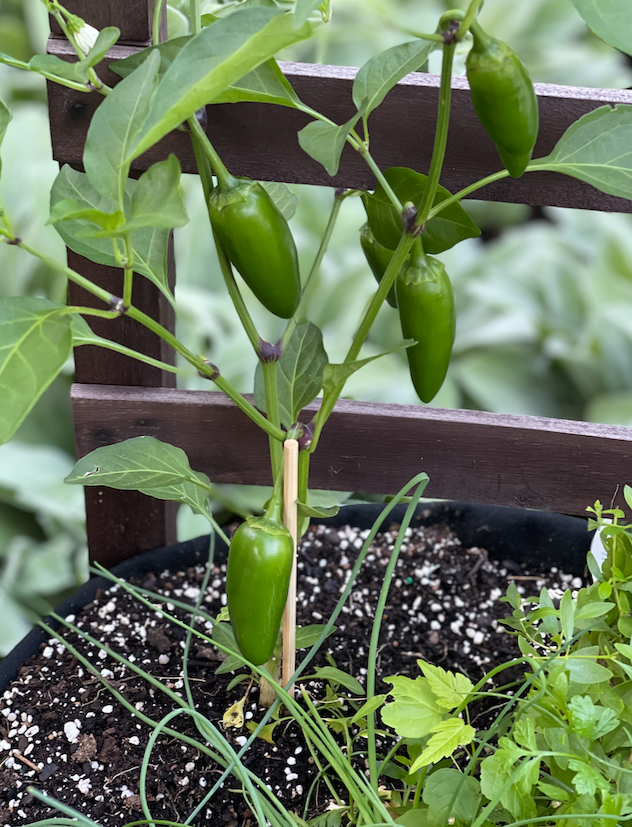Discover the Best Fertilizers for Peppers: Top Picks for Optimal Development
Discover the Best Fertilizers for Peppers: Top Picks for Optimal Development
Blog Article
Organic Vs. Synthetic Fertilizers: Which Is Best for Supporting Healthy Pepper Plants?
In the world of nurturing healthy and balanced pepper plants, the selection in between synthetic and natural fertilizers stands as a pivotal decision with far-reaching ramifications. While both options aim to supply vital nutrients to support plant growth, the nuances of their influence on the soil, plant health and wellness, and the environment stimulate a discussion that mirrors throughout the gardening area. Comprehending the distinctive advantages and prospective risks of each plant food kind is vital for pepper growers seeking to maximize their yields while keeping an eco-conscious and lasting approach.
Advantages of Organic Fertilizers
Organic fertilizers offer an environmentally-friendly and lasting method to beneficial pepper plants, supplying crucial nutrients without making use of artificial chemicals. These natural plant foods are stemmed from natural resources such as garden compost, manure, bone dish, and algae, promoting dirt health and wellness and biodiversity. Unlike artificial plant foods, organic options release nutrients gradually, making sure a steady and well balanced supply for pepper plants to grow.
One considerable advantage of organic fertilizers is their ability to enhance dirt framework and water retention. By boosting soil wellness, natural plant foods promote advantageous microbial activity, which assists in nutrient uptake by pepper plants. In addition, organic fertilizers minimize the danger of chemical run-off, protecting water sources from pollution and guarding the environment.
Additionally, organic fertilizers contribute to lasting soil fertility by advertising the development of helpful dirt microorganisms. These organisms assist break down organic issue, launching nutrients in a form that is easily obtainable to pepper plants. best fertilizers for peppers. By fostering a healthy and balanced soil ecosystem, organic fertilizers support lasting pepper farming methods that benefit both plants and the atmosphere
Disadvantages of Synthetic Plant Foods
Synthetic fertilizers, as opposed to their natural equivalents, position different drawbacks when utilized to nurture pepper plants, influencing both plant health and ecological sustainability. One significant downside of artificial fertilizers is their tendency to seep nutrients from the soil swiftly. This quick leaching can result in nutrition discrepancies in the soil, creating plants to struggle with deficiencies or toxicities. In addition, synthetic plant foods can harm beneficial soil microorganisms, such as earthworms and valuable microorganisms, disrupting the dirt community's equilibrium.
Furthermore, the overuse of artificial plant foods can contribute to water pollution. Excess plant foods not absorbed by plants can get rid of right into water bodies, leading to eutrophication, where algae flowers diminish oxygen degrees in the water, harming aquatic life. Artificial plant foods are commonly derived from non-renewable resources, such as fossil gas, adding to carbon emissions and environmental destruction throughout their production.
Nutrient Absorption Contrast
Reliable nutrient absorption plays an important function in the total health and growth of pepper plants. When contrasting natural and artificial plant foods in regards to nutrient absorption, organic fertilizers have the benefit of supplying an extra well balanced and slow-release source of nutrients (best fertilizers for peppers). Organic plant foods have a selection of macro and trace elements that are not just helpful for the plants but also promote healthy soil microbial activity, which helps in nutrient uptake. On the other hand, artificial fertilizers typically give a fast release of nutrients, which can bring about leaching and overflow, resulting in reduced nutrient absorption rates by the plants.
In addition, organic fertilizers enhance soil structure and water retention capacity, allowing pepper plants to gain access to nutrients a lot more successfully. This enhanced soil top quality facilitates origin growth, enabling better nutrient absorption. Synthetic fertilizers, although initially improving plant development as a result of their high nutrient concentrations, may hinder long-term nutrient absorption by degrading soil wellness with time.
Ecological Influence Factors To Consider

On the various other hand, artificial fertilizers, although typically more focused and instantly available to plants, can have detrimental impacts on the atmosphere if not applied correctly (best fertilizers for peppers). Their production requires high energy inputs, bring about greenhouse gas discharges and adding to environment adjustment. The overflow of excess artificial fertilizers can infect water resources, leading to eutrophication and harming water communities.
Finest Plant Food Practices for Peppers
When feeding pepper plants, enhancing nutrient uptake and reducing ecological impact are vital factors to consider. To accomplish this, it is important to adhere to ideal plant food methods tailored to the particular demands of pepper plants. One essential method is here are the findings to perform a dirt test prior to using any type of fertilizers. This examination can you can try this out identify the pH degree of the dirt and identify any type of nutrient deficiencies, leading you in picking the most appropriate fertilizer formula.
An additional crucial technique is to fertilize pepper plants at the correct time. Normally, peppers take advantage of obtaining fertilizer at planting and then again when they start to blossom. Over-fertilizing can lead to vitamins and mineral inequalities and damage the plants, so it is important to comply with suggested application prices.
Additionally, picking a balanced fertilizer with an NPK proportion that fits pepper plants' needs is essential. Inevitably, incorporating organic and synthetic fertilizers carefully can assist nurture healthy pepper plants while decreasing environmental influence.
Verdict

Organic fertilizers use an environmentally-friendly and lasting approach to nourishing pepper plants, offering crucial nutrients without the usage of synthetic chemicals. Unlike artificial fertilizers, organic options release nutrients gradually, ensuring a balanced and consistent supply for pepper plants to grow.
Artificial plant foods, in comparison to their natural equivalents, pose numerous negative aspects when utilized to nurture pepper plants, impacting both plant health and environmental sustainability. When comparing organic and artificial see it here fertilizers in terms of nutrient absorption, organic plant foods have the benefit of giving an extra well balanced and slow-release source of nutrients.Additionally, organic fertilizers improve dirt structure and water retention capability, enabling pepper plants to access nutrients more successfully.
Report this page